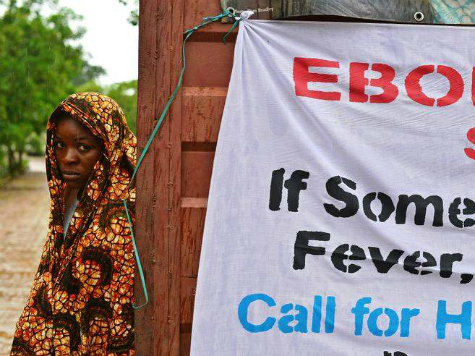The battle against Ebola does not end after a patient is cured. Many survivors are shunned by their villages and fired from their jobs. But these people do not allow the stigma to take over their lives. Instead, the people use their survival to educate others about the deadly disease in Sierra Leone, Guinea, and Liberia.
Hawa Idrisa contracted Ebola after her father-in-law’s drip slipped out of his vein and blood squirted out. The infected blood landed in her mouth and eyes. Idrisa returned a week later after early Ebola symptoms struck her. She recovered after four weeks, but her husband Nallo is still in the ward. She showed off her certificate the hospital gave her to prove she recovered, but her village is not very welcoming. Ella Watson-Stryker, a health promoter with Doctors Without Borders (MSF), said Idrisa and other survivors help convince communities to allow the medical workers to treat loved ones.
“This is very exciting for us,” she said. “It’s also really beneficial to the overall response to the outbreak because when survivors go home, they can explain about their stay at the center. They give people hope that it is possible to survive, and it really builds trust between the community and MSF.”
Medical workers fight the disease along with fear and mistrust in communities. There are villagers who believe the medical workers brought Ebola to Africa in order to harvest organs. Others believe it is a curse and prefer treatment from a healer than a doctor. Doctors found some of the earliest victims of Ebola in churches. People continue to claim loved ones died of a curse since a curse carries less of a social stigma than Ebola.
In Guinea, 24-year-old philosophy teacher Jamila survived Ebola after twelve days in a medical ward. She was cleared of the disease, but the school fired her. Only her family welcomed her back. Now she works part-time for MSF.
“People looked at me like I’d come back from the dead, like I was a zombie,” she said. “Nobody except my relatives wanted anything to do with me anymore.”
Dr. Melvin Korkor in Liberia survived the disease, but he said the treatment he receives “is worse than the fever.” People avoid him, will not shake his hand, or hug him. One student is not convinced Korkor is cured. Kadiatou Fanta’s boyfriend broke up with her, and her teachers at medical school refuse to teach her. Unlike Jamila, Fanta’s family completely ignores her.
Saa Sabas received a clean bill of health but was shunned from his family. Medical workers visited Sabas’s family to convince them he was healthy, but no one believed it. Sabas now volunteers with the International Federation of Red Cross and Red Crescent Societies.
“I am part of a team of Red Cross volunteers, visiting communities, raising awareness on how to prevent the spread of the disease,” he said. “One of the messages I try to pass on to the communities is to go early to the health center when sufferers first feel symptoms. The treatment is free of charge. People there will give you food and clothes and you can get a chance to survive.”
“We need to educate people and increase the sensitization,” he continued. “This is the key to stop the dangerous disease Ebola. Many people have already died; that is why I participate in activities [to educate people]. I urge people to go the isolation and treatment centres if they experience the earliest symptoms of the disease, to increase their chance of being cured and surviving.”
Zena, 24, and Mohamed, 34, lost their jobs after they beat Ebola. But now the two told the World Health Organization (WHO) they joined forces with medical teams to educate communities about Ebola.
“I never heard of Ebola before, now I research and read a lot, I listen to people who work in the field and I learned a lot,” said Zena. “I will continue to be ‘a community worker’ with MSF, speak on radio, and meet journalists, but I do not want to see my picture taken. There is still a lot of stigma around us.”
“We should stop community transmission if we want to come back to our normal lives,” said Mohammed. “When the car of MSF comes to drive us to our work, there are still people who think that we are going with MSF to get treated.”

COMMENTS
Please let us know if you're having issues with commenting.